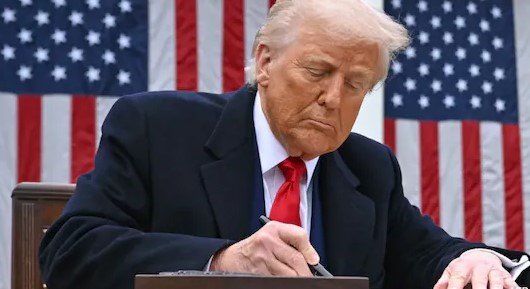The Chinese government is reportedly weighing a total halt on Hollywood films following the White House’s aggressive new tariff measures targeting Beijing.
The move would send shockwaves through the entertainment industry, cutting off one of Hollywood’s biggest overseas markets — and delivering a clear political message in the middle of an escalating economic standoff.
Trump’s New Tariffs Spark Swift Chinese Retaliation Rumors
On Tuesday, the Trump administration slapped a 104% tariff on Chinese imports. Not 10%, not 50% — more than double. That’s a thunderclap move in global trade, and Beijing is clearly not taking it lightly.
Word of China’s possible pushback surfaced through two well-connected Chinese bloggers — Liu Hong of Xinhua News Agency and Ren Yi, who happens to be the grandson of a former high-ranking Communist Party leader. They didn’t just post vague speculation. Both shared eerily identical lists of retaliatory actions, and topping that list? A ban on all U.S. film imports.
That wasn’t a fluke. In China’s carefully managed media environment, when two influencers echo the same message, it usually means someone higher up signed off on it.

Why This Is a Big Deal for Hollywood Studios
China is more than just a nice bonus for big studios. It’s a lifeline for certain blockbusters, especially the ones with global appeal. Losing access to the Chinese market could reshape entire business models.
In 2024 alone, U.S. films made $585 million at Chinese theaters. That’s just 3.5% of China’s overall box office, which hit a hefty $17.71 billion. But it’s not chump change either.
One film, Godzilla x Kong: The New Empire, pulled in $132 million from Chinese audiences alone.
Compare that to the total domestic haul in the U.S. and Canada — $8.56 billion. China is no side character. It’s a serious revenue driver.
Not Just Business, It’s Politics — And Personal
There’s more going on here than just movie profits. Hollywood has long been a soft power tool for America — exporting culture, values, and, let’s be honest, a lot of superheroes.
But that also makes it an easy target when political tempers flare. Banning films isn’t just an economic punishment. It’s symbolic. It says, “We don’t need your stories. We’ll tell our own.”
And coming from China, it’s also strategic. It’s a retaliation that hits American companies, but not Chinese consumers in essential sectors like food or tech.
This isn’t about soybeans or microchips. It’s about narrative control.
What’s on the Line for U.S. Studios Right Now?
The numbers speak volumes — and they’re not just hypothetical. Here’s a quick comparison between U.S. and Chinese box office markets from last year:
| Metric | United States & Canada | China |
|---|---|---|
| Total 2024 Box Office | $8.56 billion | $17.71 billion |
| Revenue from U.S. Films | N/A | $585 million |
| Top U.S. Title in China | Godzilla x Kong | $132 million |
A blanket ban would instantly pull the rug out from underneath major franchises, especially those relying on international markets to break even or turn a profit. That includes superhero movies, monster flicks, and space operas.
Some studios might try to pivot, double down on other international markets, or lean harder into streaming. But replacing the scale of China? That’s not easy.
-
Studios like Disney, Universal, and Warner Bros. have heavily invested in Chinese partnerships.
-
A ban could stall co-productions already in progress.
-
Marketing pipelines and international press tours would have to adjust—fast.
This isn’t just a cold email from Beijing. It’s a cold shoulder with global reach.
What Could Happen Next — And What to Watch For
So what happens now? At the moment, there’s no official decree from China. But if this move gains traction internally, Hollywood will start to feel the chill fast.
There are a few things to look out for in the coming weeks:
-
Censorship Board Activity: If Chinese regulators suddenly slow down or freeze import approvals for new American films, that’s your first big red flag.
-
Studio Statements: Watch for any public or subtle changes in tone from U.S. studios about their global release strategies.
-
Financial Markets: If the ban looks real, entertainment stocks could take a hit, especially those with known exposure in Asia.
The industry has weathered storms before — the pandemic, streaming disruptions, endless reboots. But geopolitics? That’s a whole different script.
For now, Hollywood is holding its breath. And maybe rewriting a few plotlines, just in case.








